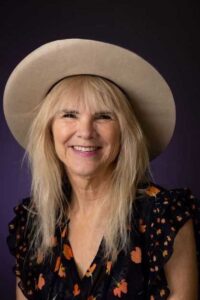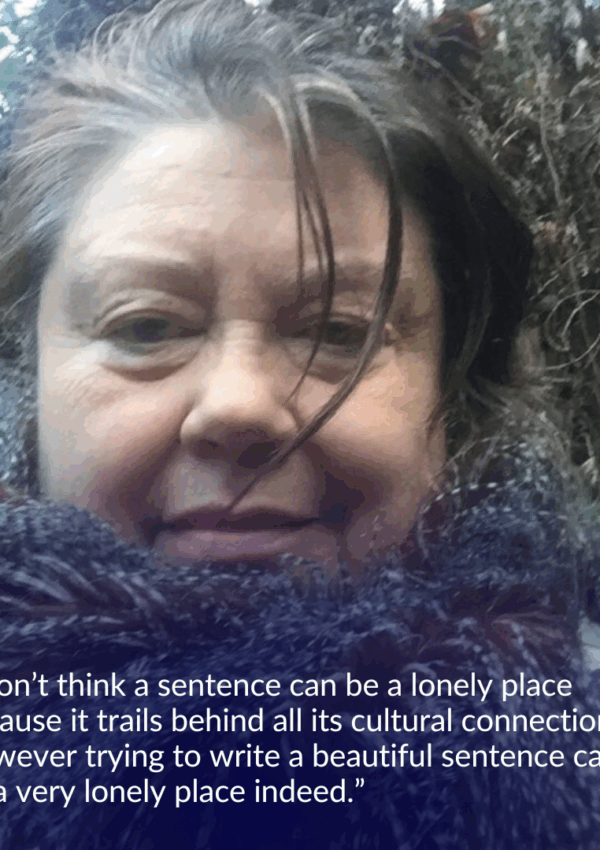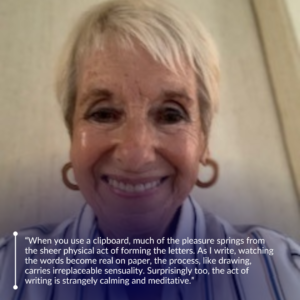Three Hearts Stitched: Poems About Adoption by Celaine Charles (Egret Lake Books January 2024) is a book-length triple helix. Voices of a birth mother, adoptive parents, and child entwine from a shared axis of freedom. Each voice clear in confusion, reflection, and hope remain equally distanced from their reciprocal autonomy and mutual dependence.
The first section, “birth mother,” invites the reader in with the poem “confusion.” The poem echoes the birth and adoptive mother both pondering:
I wonder if
I
can possibly
possibly
care for you
as I should.
The reader, rooted in confusion, is then launched towards the first taste of freedom in “blue skies” as “She soars through blue skies.” Charles’s offer of a bird’s eye view is a windswept proffer of the expansive nature of adoption, the reader being prepared to take in what is often not seen nor expressed.
As birth mother continues, she quietly shifts to a lesser viewed heart:
And in fear, your father
took you to the village market. A note
in your hand. If ever you feel lost, or
without…
And then in “your wings”: “I will set sail to you, / and free your wings.” Charles continues to pull the reader’s apron strings as the birth mother laments (“blinking red and blue”): “So now, gone / is my freedom.”
Charles provides no respite to the reader pushing forward as if giving birth, freeing a child from a uterus and cutting the umbilical cord. Birth mother then reels from “relinquishing rights” to “I am not a monster” to the poem “they say,” which speaks of sorrow: “And every choice / carries / a life sentence.” Yet it is in “tumbleweed” that the first mini volta occurs, where birth mother’s voice shifts to the tangible “Cold, geometric shapes,” “Cold room, circle lights,” and “a bloody sheet.” The reader, now in a room far from the expansive bird’s-eye view, is left with “enough reminders to never forget” in “hope” before Charles transitions to the second section—the adoptive parents.
“My prison,” is the welcome mat laid by the adoptive parents where, “Possibilities cling, / like rain to roots, / for the freedom I covet.” And much like a prisoner, the free-less voice of the adoptive parents parrots a life sentence and cold realities. In actuality, Charles seems to be challenging the reader to consider the meaning of freedom through what is beyond one’s locus of control first in “these words.”
She changed her mind.
She
changed her mind.
But, she changed
her mind.
Then resting in “answered prayer”: “Who decides this miracle? / God’s time / is not my time.”
The reader, provided a moment of solace in the presence of God, is then confronted with the second mini volta in “haiku: five words about adoption.” Charles again places uncertainty onto the lap of the reader. Haikus traditionally present a definite, though unstated, emotional response. Yet Charles expresses terror to blessings, leaving the reader with the job of sorting a stated emotional response against a backdrop of indifference. Much like an adoptive parent in defense of another, “she changed her mind.”
Charles’s tone then shifts to the child with “bundled gift” and “dear new baby,” complete with the innocence of “dandelion wishes and rabbit foot / hopes.” Yet as natural as life over time, ideals of innocence are questioned. In “always navigating,” Charles asks the reader to struggle with the unknown, that even a bird’s-eye view cannot see clearly.
This family and that family…
songs from birth and stories
about adoption. What’s real?
What’s imagined or made up?
Then in time, questions are answered with “birth announcement,” allowing the reader to hold the adoptive parents as they hold their new baby: “without care of laws, or choices, or people.”
Charles closes the second section with a telescopic view of mothers: “Mothers make difficult decisions, / no one can judge. Mothers are men who decide to stay” and “Mothers are the earth.” The reader sitting with comfort from a broad spectrum of mothering is then transitioned into the final section, “child.”
The lead poem in the third section, “wanted, unwanted,” embellishes the continuing tangle of emotions that are part and parcel of the adoptive process. Charles continues to spin this web, forcing the reader to work through the mind of the adoptee without holding back judgment or fears. In “baby girl“: “Baby girl lost / or / baby girl left.” In “three days old”: “three days old her burden/ her fear, / only… / three days old.” And in “when you’re abandoned”: “His father thought he was fine. /His mother thought he was fine, / to be on his own.”
The final volta occurs stubborn and strong—the moment the child feels a family:
She picked me up
and held me close,
while my father decided
I looked like him.
And I did.
Yet the child continues into adulthood with unanswered questions illuminated in “to be happy.”
There is unrest in
the world today, much
abuse and neglect and
forgottenness and death—
yet you found me—me.
Can I not feel fortunate?
Charles then pivots back to the birth father with a string of questions while questioning the biases of a father’s rights—opening a new struggle for the reader.
What if he wanted the baby but had
no voice…or choice? What if I tug
on this snag? What if I write
a new page?
In the end, Charles leaves us with “love” and “dear mom and dad.” She restores to the reader that the tangle, although never fully detangled for all, is freeing for her: “Thank you for the years / of stability, while others have naught.” Her journey from the umbilical cord to her family of love is a story of strength, fears, and unknowns. Charles’s voice acts as a freeing agent for birth parents, adoptive parents, and children of these families.

Judith Camann MFA, M.Ed., a diehard romanticist, grandmother & National Board Certificated Teacher in Exceptional Needs, now provides licensed therapy through her telehealth private practice verified on Psychology Today, as well as facilitates continuing education workshops for therapists. Judith is also an Editorial Board Member for the peer-reviewed Journal of Poetry Therapy. Aside from numerous publications, Judith has received poetry awards through the San Diego Annual and WA ST Arts Foundation Grant for Poetry & was a semifinalist for the 2021 Press 53 Poetry Award. Furthermore, she is a frequent reader of Seattle’s Drunken Owl Theater. Follow her at www.judithcamann.com.



